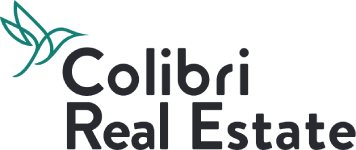Today, we’re taking a trip down memory lane—reflecting on all of the amazing guests and conversations we had on the show over the last twelve months. For this very special episode, we’ve handpicked a few of our favorite moments to share with you. Whether you’re looking to find your first deal or already own several rental properties, we hope this compilation gives you the inspiration and motivation you need to start the new year off strong!
Ashley:
This is Real Estate Rookie, episode 351. My name is Ashley Kehr and I’m here with my co-host, Tony J. Robinson.
Tony:
Welcome to the Real Estate Rookie Podcast where every week, twice a week, we bring you the inspiration, motivation, and stories you need to hear to kickstart your investing journey. Today, Ash and I want to take a little trip down memory lane and give you some of the top moments from the Real Estate Rookie Podcast for this year.
Ashley:
If you want to listen to any of today’s full episodes that we recapped, you can go to our Real Estate Rookie YouTube. You can find a link to that in the show description, and we have a playlist for you for each episode that was covered today. Going into the new year can be hard to keep yourself motivated so we’re going to start off by sharing some stories to keep you motivated going into the new year and starting the year off fresh and ready to get your next deal. And hopefully this is something that you can find relatable as to why you want to start your journey too.
Tony:
Dani, what about for you? I mean, was your why aligned? Was it more so Brandon that kind of initially planted the seed? How did you get integrated into the business?
Speaker 3:
So my why was not aligned at all. We can’t even sugarcoat that. I was completely dead against it for a very long time. He had probably been talking to me for maybe a year, maybe a little longer about his desire to do real estate and I was like, “Nope, nope, nope.” And to me it was having to change the mindset of having money in your bank account versus investing. All I could see was the bank account going down and I couldn’t wrap my head around how this was going to make us successful. How is this going to give us financial freedom if we don’t have money in the bank account? It took a lot of long nighttime conversations and him also sharing the education with me.
I had to get into learning about it, running the numbers and diving in with him to understand what we were doing and why this was going to be beneficial before I really agreed to it. Our first property, I was still very much on the fence. I was supportive, but very much on the fence about what we were doing and why, and I just kept telling myself that I’ve trusted him all along. I just got to keep trusting him. And to this day, he’ll present a deal and I’m like [inaudible 00:02:29] I’m like, “But I trust you, so if you feel it’s a good deal, then we will roll with it.” And that’s just how it works for us.
Tony:
Dani, I appreciate the transparency there because I know one of the biggest questions that we get on this podcast is how do I get my spouse on board? How do I get my spouse to go on this journey with me? You said one word that I think is so critically important. You said, “I trust him and I’ve always trusted him.” I think that’s the baseline for getting your spouse on board is that the trust between you and your spouse has to be there. And if you don’t have that baseline of trust, then there’s nothing that Ashley and I can say on a podcast that’s going to create that trust. It has to start deeper within the relationship. But obviously Brandon has done something throughout your time together for you to say, okay, when Brandon puts his mind to something, it’s not a brash decision. It’s not him being irrational, it’s because he’s thought about it and it’s because he thinks it’s what’s best for our family.
So I just love hearing that from you because I think a lot of people overlook how important trust is. But something else you mentioned though was the sharing the education. So just from a real standpoint, were you guys just listening to podcasts together? Did Brandon just hand you a book and say, “Go read this?” What did your educational path look
Speaker 3:
So he started it. He would start talking to me about it, and I’m like, I’m clueless. I have no idea what you’re talking about. And so it took me downloading the BiggerPockets app and he had me join some Facebook groups, and then I kind of just started reading and things that caught my eye or my attention. And then the conversations kind of started from there. “Did you see that they posted this or did you see this?” And then that would kind of start those conversations.
I’ll never forget the day he taught me how to run numbers. We were driving and he’s like, “Get your phone out, I’m going to teach you how to do this.” And I’m like, “No, I’m not going to be able to do it.” He’s like, “Get your phone on. I’m going to teach you how to do this.” When we did, and I don’t remember where we were driving to, but he did. By the end of it, I was running numbers for him. I always say it’s like our little marriage hobby. We don’t have a lot that we do together because we both work so much, but this has allowed us to find something in common that we enjoy doing and has brought us closer that way. So it’s been kind of cool.
Ashley:
What is your why for all of this? Why are you grinding and hustling to become a real estate investor? What’s the purpose behind it?
Speaker 4:
Yeah. So my why is to break generational poverty in my family. So I was born in the housing projects of New Orleans. The Calliope Projects is probably one of the worst housing projects probably in America. And I was raised by a single mother who was not lazy. She worked about three jobs, but just with a barely high school education, maybe up to ninth grade. She had to become a janitor in hospitals. So what she did was, as a single mother, she tried to help me and my sisters. I’m one of seven, I have six sisters.
She didn’t have a financial literacy background. My work ethic comes from her, but she didn’t know you can’t just get wealthy from working. And my why is to break that curse because I’m the only one that’s mainly in my family who understands financial literacy and practice it. So it would be a full circle moment to be able to leave a legacy that’s beyond me. So my future nieces and nephews and great nieces and nephews and possible children wouldn’t have to be born into poverty. So that’s my why.
Ashley:
Lawrence, I’m so proud of you. Just stating that you’ve taken the initiative to educate yourself, and that’s very hard to change how you’ve kind of known everything for your whole life to change and to want to take action onto something else. I think that is a great why, and it seems like it’s definitely motivation enough for you to keep going and to really create that generational wealth.
Tony:
Lawrence, I love hearing the story and I think it’s proof that where you start obviously has a big impact on how far you can go, but it definitely doesn’t cap what you’re capable of.
Lyrva Sanchez is a registered nurse, single mother of two boys living in Southern California, actually not too far from where I live in SoCal. And after her separation, she spent two years chasing down the shiny object syndrome of wholesaling and a little bit of out-of-state investing. But then she doubled down on a real estate strategy that really worked for her kids and learned that one property could really change her life. What would you say drove you into the world of real estate investing?
Speaker 5:
So as you mentioned, I was newly separated. We have two young boys, and that was a really difficult time. Actually, there were a lot of good things going on and not so great things going on. I had just paid off all of my debt. I had school debt, I had car loan, just paid off everything.
Ashley:
That is amazing. Congratulations on that. That’s not typically an easy thing to do.
Speaker 5:
Thank you. Thank you. So I was on a Dave Ramsey trip and it was just full on saving and saving and putting everything towards the debt. So when we made this choice, this decision to separate, it was a really, really obviously difficult and challenging time in my life and it just made me shift towards working on myself. So I dove into personal development, self-help books, all of that. But part of that process, I also came across real estate investing, building wealth, how do I still carry on with my dreams and the life that I want for my kids now that I’ve pretty much lost my income, half of my income overnight basically.
So that’s how it just came to be. It was part of that whole process of going inward and just trying to do better, be better and have the same or better life for my kids regardless of my status.
Tony:
Just one other question. What would your advice be to someone that is maybe in a similar situation where they’re going through this big life change? A separation divorce is something that’s unfortunately common today, and there are a lot of folks that have these aspirations of becoming a real estate investor, but they might use this life event of a separation or divorce as an excuse as to why they can’t invest in real estate. So just what is your advice to someone who’s in a similar situation that’s looking to get started?
Speaker 5:
I think my advice is to keep hope. Somehow you can figure out a way. It’s not that you can’t, it’s just that you haven’t figured out how yet and finding a way to make it work for you and your lifestyle. I would say going through the motions, it took me a long time not giving up, trying to find information, reading things. You’ll come across random articles, things that help you. That’s how I found it play out for me. I was really tight on cash to purchase a property. Not for my expenses. These little clues would come up or opportunities.
There was an opportunity at work for me to get a promotion and I took it because I was thinking in the back of my head, “Real estate that’ll help me.” So just try to stay motivated and don’t lose sight. The shiny object syndrome is a really big thing and it really did impact me for a good two years.
Tony:
So you guys just heard some ways that some of our top rookie guests found their whys behind their real estate investing business, but obviously a lot of you guys have a goal of maybe doing this whole real estate thing full time, but in order to do that, you’ve got to be really solid on the fundamentals. So what you’re going to hear next is the foundation that some of our real estate rookie guests built that allowed them to take that step into doing this full time.
Speaker 6:
And I got started in my investing journey in 2020.
Tony:
It’s a great time to start.
Ashley:
Yeah. What made you start then? What was that kind of moment that happened for you?
Speaker 6:
I’m not sure if it was an epiphany or a come to Jesus talk with myself, but I hit that crossroad where I was like, “Okay, I can keep going down this path that I’ve been on and I’m going to get the same results.” Or I can change the game up and see if I can better my life. I was not somebody who was big into finances. I honestly was a day by day type of guy like paycheck to paycheck. I’ll figure it out eventually. And then 2020 happened. I think I can accredit a lot of it to a good buddy of mine, Caleb Kennedy. He was the first person that I ever had a finance talk with and he made being frugal look cool.
Instead of going out and on the weekends and stuff, he’s like, “Mike, nah.” He showed me, I believe it was his Robinhood account and it had a very significant amount of money in there. I knew at the time we made about the exact same money at year and my account didn’t look anything like his. So I was like, “Man, how did you do that?” He’s like, “I’m cheap. I don’t spend money.”
Tony:
Yeah. Mike, I love that story because you said he made being frugal look cool. And that is such an antithesis to what society promotes. Me and a friend were talking the other day and it’s like there’s so many people on social media who have these big followings and a big part of the reason that their followings are so big is because they’re posting wads of cash and I got this and I got that. And that’s just not my personality. I’m not a flashy person like that. But that’s what a lot of people are drawn to for whatever reason.
But I think if we can all do a better job of normalizing frugality and making that the cool thing, and exactly what you said where it wasn’t necessarily the car that he was driving. It wasn’t necessarily him going out on the weekends doing all these crazy things, what really impressed you the most about him was his Robinhood account.
Speaker 6:
100%. I mean, it was a game changer for me because I was one of those people. I drove a BMW and it was literally paycheck to paycheck. I never thought about my retirement. I never thought about, “Hey, if I have kids, it’s going to cost two, three, $4,000 a month. I’m not saving two, three, $4,000 a month, so what am I going to do?” And so that was in February of 2020. I was like, “Well, I’m going to be cheap.” I eliminated as many bills as possible. I started tracking every single penny that I spent.
Ashley:
How were you tracking that, Mike? Were you using Excel, an app or something like that?
Speaker 6:
The good old-fashioned way, pen and paper.
Ashley:
Yeah?
Tony:
No way.
Speaker 6:
Yes, sir. I have books now. So I literally just started writing down everything that I spent and each month I would try and improve it. I spent this much on gas, I spent this much on food. Let’s see if I can knock a little bit of this off. And at the time I was still bodybuilding, so my food was very basic. So I’d go and try and find the cheapest chicken, I’d try and find the cheapest rice. I’d buy it in bulk, 20, 40 pound bags of rice. I cut vegetables out. I was like, “Man, I just need protein and carbs and fats.” So sorry the greens ain’t working no more.
And just made it as cheap as possible when I started paying off debt, because I did have some credit card debt, had that car, which I ended up selling, getting rid of when the economy went crazy and used car values went up, I didn’t have to pay anything to get out of it because at the time, I think I owed 26, $27,000 on a car, which was, now I look back, I’m like, “Jesus, Mike, if you just had the money you spent back then, you’d never have to work a day in your life.”
So that was that February. I’d never even thought about buying a house. As bad as this seems, I didn’t think I’d ever be able to because I didn’t keep up with my credit. I used to be ashamed of all this, but now I look back and I’m proud of it because it led me to where I am today.
Tony:
And Mike, just really quick, I don’t think you should ever be ashamed of that, right? It’s like every person has a backstory and none of us would be who we are today without that backstory. So there is a high possibility that you wouldn’t be on this podcast with us right now having this conversation if it wasn’t for those decisions that you made and what you feel were mistakes if those mistakes didn’t happen. So I think there’s always a lesson to be learned.
But just one thing I just want to ask before we keep moving. So you went on this journey to radically reduce your monthly spend. You don’t have to tell us the exact numbers, but just were you able to cut it in half? Was it like a 25% decrease? How much were you able to bring down your expenses over that timeframe?
Speaker 6:
Probably a little over probably $2,500 a month.
Tony:
Wow.
Speaker 6:
Yeah, that’s what I was able to save per month after. So I reduced it by $2,500 a month.
Tony:
How did you make the transition from saving everything to now pouring that into building your income?
Speaker 6:
Well, I knew real estate was the way out. It was about that time in 2012… Actually, it hadn’t gotten until the end of the year because I set a goal that February, I said, “By the end of this year, I’m going to buy a house.” So I was eliminating debt, improving my credit score, saving money. I paid off all those credit cards, paid off a ton of debt. December 30th of 2020 is when I closed on my first ever house.
Ashley:
My cousin, she just got engaged yesterday actually. And when she started dating her boyfriend, he owned a duplex. And after a year dating, she moved in with him and she was just complaining, “We need a bigger place. I don’t have a closet, all this stuff.” And I said, “What are your plans this weekend?” And she named two places they were going on to dinner. They were going to, I don’t know, a concert something. I was like, “What trips do you have planned?” She’s planning all these trips and I was like, “Do you enjoy that? Do you love all that?” And she’s like, “Yeah, I do.”
I said, “Do you know why you can do that?” And she’s like, “Well, my boyfriend pays for me.” I said, “Yeah, do you think he could pay for that if he has this huge house mortgage now?” She was like, “Oh, yeah.” It clicked with her and now she just got engaged in Scotland and they just bought this beautiful huge house and everything. It was that delayed gratification that she had to suffer and live in a small little apartment and have a tenant downstairs for a couple years. But it is remarkable what can actually happen.
It may not seem like that much, but it actually can add up to a lot down the road. It’s almost like you think of compound interest. It’s all these compounding effects of house hacking and be able to cut those living expenses out can really add up in the long run to save for that big beautiful diamond ring she got.
Tony:
When I met you, you were still working your day job as an engineer. And for so many people in the country, you had already achieved a piece of the American dream. You went to college, got a technical degree. You had a very healthy salary. You had this position that probably you would’ve been employed for the rest of your life and you would’ve been able to retire and do all things the right way. So what was the impetus for you or the motivation for you to leave this very comfortable lifestyle you had built for yourself?
Speaker 7:
Basically when we started the return to office, my soul just died. I had basically spent the last two years during COVID being able to work from home. I got my real estate license as well. So I was already selling real estate on the side and my life just felt like enjoyable and I had more control over my time in my life. So the second we started going back into the office, I was commuting an hour each way to work, which was not fun. I just started getting so angry and frustrated. And if you know me, I’m not a very angry person. Having that taste of freedom really just kind of skyrocketed it for me. And that’s when all the gears started changing. And then I actually won tickets to Tony’s conference and went to the conference and came out, and put in my two weeks notice.
Ashley:
Oh my gosh. Wow. That’s incredible. Okay. So let’s start right there. So at the conference you decide you’re putting in your two weeks notice, what were the safety nets you had that you could go ahead and make that decision?
Speaker 7:
So buying my duplex was honestly step number one. I didn’t realize how much of a safety net it really was because especially… And I still don’t really take any money from it, but I was just building up this little nest egg. But the cool thing about my duplex is it covered all of my living expenses, so I knew that even if push came to shove, it’s literally me and my dog. That is my family right now and the only people I have to take care of. So I knew that if push came to shove, I would be able to survive off of ramen for the next few months and still be totally okay.
So that was the first step. And my duplex also cash flows too, so I have extra money coming in from that. But then I also have lots of other side gigs like my social media stuff. I knew I was going to be okay, I just needed the push. And then that’s also when I started our short-term rental business too. And I say are because literally after that conference I was on the flight home and I texted my best friend who we just literally talk every day, do everything together.
She’s heard me talk about real estate for years, and I’m like, “So I think I’m going to start this business. Do you want to join me?” That’s how everything just little started.
Tony:
So, Olivia, if we can, I just want to drill down a little bit on this a bit more. So at that moment you said that you were angry, you were upset about the idea of going back into the office, but I mean it has to be a really strong emotional reaction to say, “This is a big enough of an issue for me to want to leave my job.” So I guess just walk us through just not only the logical side of I want to leave, but just mentally, emotionally, what was going on for you to say, “This is enough. I’m going to leave because of this.”
Speaker 7:
So I really went through this emotional and mental breakthrough. It was like an identity change because for the last 10 years I’ve been an engineer and I’ve been advocating for women in engineering, Black people in engineering and all of that stuff. And suddenly I was just kind of letting it go. So that was really hard just personally to work through because it felt like I was letting a part of my identity go. But then I just saw how much upside there was to it.
I was so much happier when I got to do real estate things and when I was setting up properties and when I was doing all this stuff. So that kind of just pushed me over the edge. But also the way I won tickets to Tony’s conference is I don’t even actually remember signing up for this giveaway because tony was doing a social media giveaway and I was depressed basically on the couch and a little bit inebriated, but I don’t remember actually signing up. But I was in such a bad mental space. And then three days later I get this notification on Instagram from Tony being like, “Congratulations, Olivia, you have won tickets.” And I’m like, “Wait, what?”
I remember I was supposed to go offshore during the conference in the middle of the Gulf of Mexico, and I was like, “Nope, I am putting in vacation days. I’m going to this conference. This is a sign.” And so that kind of just spearheaded everything. And then I went offshore the next day when I got back.
Tony:
Ashley, I just want to point out, me, you and Olivia all have that same identity crisis type thing after college. I initially went to school to be an engineer. I was actually working at Chevron. Isn’t that where you work too, Olivia, at Chevron?
Speaker 7:
Yep.
Tony:
Yeah. So I was also working at Chevron as an engineer. Ashley, I know you went the accounting route. And it’s like it is difficult because you go to school for all these years and you pour into this identity of who you are. And to come to this realization that it’s not who you want to be anymore. It is a difficult pill for a lot of people to swallow, but I think we should all give ourselves some… I don’t know. We should be proud of ourselves for, A, being so young and making that decision. But second, just having the courage to do that because there are people who feel that feeling inside of them for years, decades for their entire life sometimes, but they’re never able to really pull that trigger and make that change happen.
One of the things that I always thought and fall back on is if I make this decision and say things don’t work out, I always know I can go back out and get another job.
Ashley:
That was great motivation. I loved hearing from Lawrence’s why, Mike’s money mindset, and how Olivia was able to quit her six-figure job. We always learn a lot from our rookie guests and I want to continue with hearing some great tips that rookies have shared with us throughout the year. Did you think having your real estate license was a huge advantage in getting started?
Speaker 8:
So having my real estate license has helped us on one of the five properties that we have bought now. I’ve only taken a commission once, so it has helped, but what we normally wind up doing, and if you’re debating getting your real estate license and trying to figure out if it’s worth it or not, you can get your license and it does help. I think it’s beneficial to be able to run numbers and to MLS access and different things, but you don’t necessarily need it because what we wound up doing is I would call the listing agent and say, “Hey, I’m willing to waive my commission if you’ll accept our offer on this property.”
Or in the case of our first property because our down payment was a limiting factor for us. I said, “Hey, I’ll waive my commission if you can just give us this money in closing cost credits. So you’ll pay for part of our loan fees and make some upgrades to the house for us.” And that helped us more than just getting a commission. So I think it’s 50-50 if you want to be entrenched in real estate or you think that you’re going to be buying a lot of properties. It doesn’t hurt. It could cost 600 bucks a year, a thousand bucks a year to maintain your license, but you don’t have to have it to get started or to build a massive real estate portfolio. It’s really a personal preference thing.
Ashley:
I love that answer though, just getting your perspective on it and your opinion because we get that question so often.
Speaker 9:
Yeah. So I mean I was newer to real estate, but what I did is I started with finding the deal. So I found the deal, I ran the numbers, I learned how to comp properties so I knew what this property would be worth after the repair. I knew what it would take to go into it just with my background in general contracting, had some people look into it. So I started with finding the deal and then we go, “Okay, how are we going to fund this? Who’s going to buy this?”
And even though I didn’t really have real estate experience at the time, I had life experience. And so back from my home in Southern California, my husband and I were very involved in multiple circles. We were coaches in different aspects and sports and things like that. So this connection was someone who we had worked with for years. They had trusted us with their kids.
So I was like, “Well, if they trust us with their kids, they’re going to trust us with their money.” And so we just called him and we said, “Hey, Bob, I know this is crazy, but this is the deal. This is what it’s looking at. Here’s the numbers. I’ll show you. I’ll send you the comps. Here’s what I think it can do.” And because they had that trust aspect I think already with us, they trusted us in the opportunity. So because we had already built that relationship with them, they felt comfortable to take that leap into partnering with us. And so since then, they actually are one of our main partners. They partner with us on a lot of deals now and we’re very grateful for them.
Tony:
McKenzie, you just did a phenomenal breakdown of a lot of what Ash and I talk about when it comes to finding partnerships. So I’m just going to break down what you said here for a second. So bear with me. So first you identified what your unique skillset was, and that was finding the deal. You leveraged your strengths, you leveraged your skills to find a really good deal. Then you said, “Okay, if I’m looking at the puzzle pieces of making this transaction happen, I’ve got the deal finding, I’ve got even the property or the project management side, but I’m missing the capital side. So okay, let me go out and find a partner to fill that void.”
So you go out there and you find someone that has those resources that you’re lacking. Now, this person had never really done real estate before, but you said the reason that they were willing to work with you is because there was that level of trust there. One of the things that Ash and I say in the book is that when you’re looking for a partner, people typically partner with people that they know, like, and trust. So you need all three of those. So even though this person had never invested in real estate before because you had that foundation of know, like, and trust, when you presented them with an opportunity, they were willing to jump at it because you guys had built that foundation.
Ash talks a lot about her first partnership where that partner invested his life savings into a deal and it’s because him and Ashley had that know, like, and trust. So I just love that story because you really exemplify all of the critical elements of putting a partnership together.
Speaker 9:
I think a lot of people think, “Oh, I can’t get started until I have all this real estate experience.” Well, you’re never going to get started if… Because it takes deals and capital and things to get that experience. So I completely agree, and I think if people open their eyes to, “Oh, maybe this person,” I hear that all the time, “I don’t know anyone with money.” I actually really doubt that’s true. So really look and it never hurts to ask, and I always say, “If you find a deal, I feel like the money and the capital will follow.” You just got to start with the deal. So yeah, I agree.
Ashley:
Where are you getting this data from that you’re pulling to use for your numbers, for your expenses so that you know it’s the most accurate data that you can get?
Speaker 10:
Yeah. Okay. So as far as expenses are concerned, the upfront expense is going to be the down payment that we make. We usually make 25% down payment risk of it refinance. So that part is fixed, which is the upfront expense. Then after that expense is the interest, which is a mortgage payment. For that, I have close relationships with the lenders and I try to stay on top of the market so that I know, “Okay, what is the rate for a 30-year fixed mortgage? What is the rate for 7/1 ARM? What is the rate for 5/1 ARM?
Ashley:
Is that just you emailing them and asking them or are you going to a website to look for that? Where could somebody else find that information?
Speaker 10:
I actually call them up to get that information, yes. So I call them up and that’s how I get that information because every scenario is so different, and since I’m not looking at only a long-term rental, it could be even a midterm rental. I could buy a second home, use it as an investment property. I could buy a duplex or a triplex or a quadruplex. And financing does vary depending upon the type of the property. So that’s why it is so important not to just rely on one number from a website, but to actually share the detailed scenario and then get the rates so that information I’m getting from my lender and I’m not just calling up one lender, I’m calling up at least three so that I’m doing my shopping before I decide to go with one
Tony:
Puja, one follow-up question to that, I know a lot of rookies, they get nervous about either having their credit run a bunch of times or maybe building a bad rapport with the lender because they’re always telling them these deals, they never actually end up buying. What are your thoughts or how do you navigate that? Are they running your credit every single time or are they just giving you preliminary numbers? Do they know that these are properties you’re just looking at or are they expecting you to purchase all of these? How do you work that dynamic?
Speaker 10:
Yeah, so regarding being worried about what the lenders are going to think that, “Oh, you’re just asking them to give you the rates and just keep calling them up.” And you don’t know when you would be able to pull that deal off. It could take three months, four months. I’ve been calling up my lender for the last seven months, so it’s a long time. And then after that, as far as the credit check is concerned, no, they don’t run my credit check. I agree. I don’t want a hit on my credit every time I’m trying to shop, every time I’m trying to analyze a deal.
They don’t even run a soft check and it just varies. Let’s say if I’m working with the lender who I have already worked with in the past, they would ask me the questions, “Hey, has anything changed with respect to your situation in terms of the new debt that you have taken in terms of your income?” They would ask those questions on the basis of the information that they already have about me, they are able to run that scenario for me.
So no, the hard credit check is not a mandatory step. A good lender who wants your business, who knows what they’re doing should always be willing to give you that pricing.
Tony:
Puja, I want to follow up because one of the other things you mentioned that I thought was interesting, and you’ve led into it a little bit, is that in these four or five steps that you listed out here that you focus on the expenses first and you say, “Hey, I don’t want my expenses to exceed X dollars per month.” Can you walk me through why that’s one of your first steps? Because I think most people start on the other end where they say, “Hey, I want my cashflow to be X.” But you’re looking at it from the opposite side where you’re focusing on the expenses first. What do you feel has been the benefit of you flipping it around and going at the expenses versus the cashflow?
Speaker 10:
The reason I start with expenses is also to account for the unforeseen scenarios, to account for the vacancies. Let’s say the house is vacant for a month or two months. Let’s say the tenant is not able to pay their rent for a month or two months. You have to go through the eviction process so that monthly outflow will decide whether or not I would be able to pay that mortgage even if nobody’s paying that mortgage for me. So if it is $10,000 a month then I have to pay those $20,000 for two months. That’s a lot of money. I don’t want to take that risk.
So depending upon my own reserves, depending upon my own income, I decide that threshold. So that $5,000 is I’m okay. So one month I could pay $5,000 if there was a vacancy or somebody didn’t pay the rent on time. So that’s the reason I start with the expenses because… And this is my personal opinion. If I stay focused on generating a cashflow of let’s say $500 and I’m buying a property which is like 1.5 million and the monthly cost is like $8,000, and if I have to pay that $8,000 one time, $500 does not make sense. So that’s the reason I have this process where I actually look at the expenses first.
Ashley:
What made you start with flipping?
Speaker 11:
Because one thing I love about real estate, and once I got further into it, I realized how diverse there was. I was having a little analysis paralysis because it was like, “Do I want to find a storage unit? Do I want to flip a house? Do I want to do Airbnb and do more of the hospitality side? Do I want to do just buy and holds?” I really got more into flipping first just because a lot of the investors I was working with were doing flips, and so I really was able to learn a lot from that process. I would go walk the properties with them.
There would be investor list and wholesaler list that would send out, “Hey, we’re having an open house one to three this day, all you investors come to this house.” I would go to the house, really not the intent of purchasing it, but I would go to just walk the property, work on trying to get my rehab costs. I’d have my own little spreadsheet that I was working off of. Then maybe I got lucky a couple of times and I had a contractor actually walk some places with me that they would give me their idea of what it thought it would take.
I would just go to some of these open houses and just listen to what other people were saying too because a lot of these were some of the bigger investors in Houston and they would be walking around pointing out things. I would just listen and I would hear what they would say, “Oh, this is going to cost 1,500 to do this toilet thing or whatever like that.” And I was just mentally taking notes.
I went to 20, 30 of these in the first few months with no intention really of buying, didn’t have the financial means to buy anything, but I was just getting all this information to really learn rehab costs and what was really going to make me comfortable going to that next level of actually putting in an offer and putting up my hard-earned money that I’ve been working for so long that I was so nervous of deploying.
But once I actually started putting out offers, all that stress kind of went away because I saw the ability of what it would actually generate if something went through with a well deal and just trying things.
Tony:
Garrett, we’ve interviewed your episode 289, so we’ve had 288 conversations up until this point, and I don’t think a single person has ever said that they’ve gone to open houses just to hear what other potential investors are saying the house might need when it comes to rehab. Dude, what a simple yet super effective way to estimate your rehab costs because I feel like for a lot of new investors, that’s one of the things that really gets them stuck is that if you’ve never done this before, it’s hard for you to ballpark what amount of money you might spend to buy and renovate a home.
Obviously, once you’ve done it a few times, and if you’re buying with inside your buy box, you know exactly what it’s going to cost. Ash, I’m sure you know exactly what it costs to renovate a duplex in buffalo. I know exactly what it costs to renovate a three bed, two bath and Joshua tree, but if it’s your first time doing it, there’s a lot of question marks there. You also mentioned about getting the GC to walk with you, but one other follow-up question on this listening.
So I guess first, how long were you at these open houses? Were you just there the entire time and just letting people come through and then were you actually having conversations with the other investors or were you just kind of a fly on the wall and taking notes? Just walk us through the tactical side of how you actually got information out of that open house.
Speaker 11:
At first I was a little more nervous. I wasn’t trying to be obvious that I didn’t know what I was doing and things, even though looking back, that’s so naive to think that way. But I would go maybe 30 minutes, 45 minutes. I would just walk around and act like I knew what I was doing. I wouldn’t really talk to many people. Every once in a while I may kind of get into it, but a lot of these people were looking at whoever was in the house as their competition and things like that.
But it blew my mind. I noticed this from doing residential retail sales that people go into houses and they just talk out loud and they don’t realize that I may be listening or buyers are walking in saying all these things. And the opposite side is you got to be real careful. And I tell my buyers, when we walk into houses, you need to be real careful what you say out loud. It was similar on the investor side. People were just kind of like, they would be walking in a bathroom, they would look up and be like, “Oh man, you see that? Oh, there’s a leak right there. Oh, that’s going to be a good $5,000.”
I was just taking this all into account. And after I got a little more comfortable with different investors and the terminology and all my own research through BiggerPockets and just trying different spreadsheets people put online, there’s a ton online that… And especially in Texas, there’s different contractors or people that do rehabs that will put out a free spreadsheet of what they estimate this cost for a new window here.
There may not be the exact answer, but it gave me a good guideline to where I was going to go when I started walking properties on my own that I was actually considering buying. I would always add that extra cushion on top knowing that everything is always more. I saw this from helping investors that everything always goes more expensive than you. Very rarely does a flip or anything go under budget.
Tony:
No way.
Speaker 11:
Yeah. Once I realized that, I was like, “Oh, I probably need to add a 20% buffer on top of this too while I’m doing it.” So it was just really getting bits of information and I had analysis paralysis probably for the first year or two because I was just so nervous like, “Oh, these guys, they’ve been doing it. They got cash funds to do it. Even if they fail, they’ll be fine. And if I fail, my cash funds are gone.” But once I do it and I saw regular Joe’s and Jill’s doing whatever, doing the same things I wanted to do, I knew that there was a way I could make it happen, and I really just needed to put my feet in the fire and probably start making offers and have a few failed deals, which is what happened to kind of learn, “Okay, this isn’t going to work, but I learned a lot from it.”
Nothing like that is a failure. You can’t fail until you quit. You can only take these as lessons from all your losses or all your tribulations that the next one, eventually you’re not going to make that mistake again. When you start making consecutive mistakes, that’s when there’s an issue that needed to be corrected. If you make one mistake and you can nix that in the bud from the beginning, then that is how your journey should be going from what I’ve seen from the outside.
Tony:
One question I want to ask was because you’ve got these systems dialed in to really high level of detail, and I think one belief, maybe a limiting belief that a lot of people have when it comes to flipping homes is that you got to be there to walk the properties. You got to be there to shake the contractor’s hands and make sure that you’re checking on their work. Is that true or is it possible to do this remotely as well?
Speaker 12:
It’s totally possible to do it remotely as long as you have boots on the ground that are driving the properties at least once a week. So even if nothing changes in the rehab, say it’s sitting there, we’re waiting for permits to get processed, we will still drive it every week because you never know if squatters are going to show up, all of a sudden a pipe is going to burst, it’s going to, whatever, you want to make sure that you also have pictures if anything happens that you need to go to court for.
Not to scare you guys, but if someone breaks in and you need to file an insurance claim or something like that, you now have a record trail. And so the biggest blessing for being efficient in our business was the fact that both Tara and I lived over an hour away from all of the projects that we did. So there was no way we’re going to drive to maybe three hours in traffic to and from those projects every day or every other day.
So we created these systems to be able to manage them afar. We’ll go down once a week and we’ll take pictures once a week, and then we trained our contractors that if they had a question, they text us a few pictures, they send us a video or we FaceTime them and we’ll get them the information that they need.
And then we also made sure that we had boots on the ground in that area, networking, maybe newer investors that wanted to learn where if we really needed something, then they would help us out because we’re also contributing and helping them grow their business. The other thing is we’d also have a handyman on call where, say, a basement all of a sudden starts flooding and our contractor can’t get there that’s on the job, or it’s not part of a scope, we need it clean up something after hours and they’re just going to be too expensive to do it. They’ll go and put bags and [inaudible 00:43:31] it out or something like that.
So in the beginning when we didn’t have systems set up, I was working six and a half days a week. Long, long fricking days, but mainly on the computer. I’d only drive the properties once a week. And as you start setting up these systems, these templates and getting really good at the planning in the beginning to get the contractors all of the information that they need upfront, then you’re really just monitoring the construction as it goes along and problem solving little things that come up that were unforeseen in the beginning.
So within the last few years I’ve gone to South Africa for two months at a time while I have seven projects going on, for example, or I travel a ton at least once a month. And so-
Ashley:
You’re not even home right now as you’re doing this podcast.
Speaker 12:
I’m not home right now. Yeah, exactly. And so having that freedom, and honestly, that’s why we got into real estate. And so start today in building those systems, building those templates. Like I said, they’re not scary. Just start putting information down on paper and then figuring out how you want to organize that. And if you’re not the best at that, then hire a VA that is good at organization and then eventually lead up to hiring a team member that is.
Tony:
I guess first if you can define what midterm rental is because there might be some folks who aren’t familiar with that phrase. And then second, how are you sourcing people to put into your midterm rentals?
Speaker 13:
Absolutely, yeah. So medium term rental, at least in my definition is anything that’s a 30-day stay that’s furnished where you’re paying the utilities. And so it’s basically that you have an Airbnb that instead of renting it out for a weekend or three, four nights, whatever, you’re renting it out for at least 30 days plus. And the main reason for that was because Fort Wayne’s not a vacation market. People aren’t coming here for leisure. They’re coming here for work.
And me being in healthcare, whenever I went and I walked through the hospital once we were allowed to come back after, I think it was like six weeks, they had us, NP stay at home and try and do video visits. And then once I got back in the hospital, I didn’t recognize anybody in the hospital. I didn’t recognize any of the nurses. And I was like, “What is going on?” And so I started talking to people and everybody was a travel nurse. And I was like, “Where are you guys staying?” And they’re like, “Oh, I’m staying at the Super 8 down the way.”
I’m like, “How much are you paying for that?” “Oh, like 60 bucks a night.” I’m like, “Are you kidding me? That sounds horrible.” And so it got my wheels turning. I was like, “Surely there has to be a market for this.” And that’s how we got started. We started renting out the carriage house. So we furnished it. It’s 600 square feet. It’s a little brick. It looks kind of cool. My wife did a wonderful job of making sure that it looked really, really good.
And within the first 24 hours of us going live on Airbnb, we had a nine-month booking. And the nine-month booking was not even for a nurse, which is what I expected our bread and butter to be. It was somebody that was coming to town with his wife and he was a lineman like power lines. He was working on them for Indiana Michigan Power, the power company. And so not even somebody that was on my radar, they booked it for nine months. And so that just really opened my eyes that, “Hey, there’s a huge industry for this, not just travel nurses.”
And so then we expanded. We’ve got now our main house that was with the carriage house. We moved out of that, and that’s now a medium term rental. That’s a two bed, one bath. And then we have a town home that’s a three bed, two and a half bath. That’s a medium term. We did an arbitrage of a one bed, one bath that’s near the hospital that I worked at, that is a medium term. And then I’m co-hosting for a friend of mine that’s a medium term.
Ashley:
Can you explain what arbitrage is?
Speaker 13:
Absolutely. Yeah. So I just gave them a call. I was like, “Hey, my name is David. I do medium term rentals for travel nurses. I work at the hospital. There’s not enough housing. Would you guys be willing to do a corporate lease with me so that I can rent out to some travel nurses?” So basically you go in there, you sign a lease saying, I will pay X amount, which is whatever the market rent is. And then we furnish the building, put all the utilities in our name, and then we’re re-renting it to travel nurses, and then we make the spread.
Ashley:
Did they do a whole tenant screening on you, do the credit and background check on you-
Speaker 13:
No.
Ashley:
… as the renter? No?
Speaker 13:
They didn’t do anything.
Ashley:
Wow.
Speaker 13:
I made sure that I walked in with my scrubs on, with my badge on, so maybe that helps.
Ashley:
I liked how you used the word when you approach them, you want to do it as a corporate rental because that has been… That’s actually done for a really long time is corporate rentals where this medium term stay is new where more people may not know what it is. So I really like the way that you kind of worded that and pitched that and that’s really awesome.
Speaker 13:
I made sure that I never once mentioned the word Airbnb. I was like, “Then they’re going to freak out.” But it was, yeah, I think it was that I’m going to be having nurses that are coming into town that are working at the hospital. And so it’s pretty hard to try and turn somebody down with that whenever they’re coming to the community to help out with the sick people that we have.
Ashley:
I think one of the key points that you touched on there is the operations piece. And even if you are seeing yourself as an investor and you’re buying multifamily, single family or whatever asset you are buying into, there is some piece of asset management and that is part of the operations. I think that’s actually where a lot of money is left on the table too because everybody’s so focused on, “I need more, I need more. I need more units. That’s how I’m successful.” Instead of going back and looking at your properties and being, “How can I restabilize them? How can I cut my insurance costs by quoting my insurance? Doing all of these big picture items and then getting into the details of the actual property and then how you have your systems and process.
You go in and you’re like, “This is the operation method we have. This is the process we’re using.” And that is part of why you have been so successful, been able to keep a strong portfolio is because as you mentioned in the beginning, there was those three things. The quality, just answering the phone, even making sure people know you are there, that is a huge part of a lot of strategies. And Tony, even more for short-term rentals, like customer service is a huge thing. And having those operations put together. And if you can really take the time to put out those systems and processes that is going to bring you more money than just buying, buying, buying.
Speaker 14:
A hundred percent.
Ashley:
We had a guest recently on that did short-term rentals, and she said, “We’re not buying anymore right now. We’re going back to the current rentals we have. We’re adding a hot tub. We’re adding a sauna. We’re seeing how we can add value to the current properties we have already because we’re going to see a larger… We take 20 grand, we put it into our current property. We’re going to see a larger increase in revenue than if we went and bought a whole nother property where we have to set up another whole set of operations. We have more overhead now.
And I think that’s a big piece that’s forgotten. Everybody just talks about the acquisitions, acquiring and the operations is almost kind of set aside sometimes.
Speaker 14:
Well, and it did because the market was so good, nobody had to do it. And two, frankly, everybody got lucky. So everybody, all these capital allocators and everything, they were just like, “Oh my gosh, we’re just getting the benefit of this upside.” Nobody thought about actually running it. Why? Because you didn’t need to. Occupancies were so high. Rental rates were just going up regardless of what you did. And that’s great in the moment, but that’s never a long-term trend. That will always reset. Always.
The market will get rid of bad performers and owners, and bad assets. That’s an actual inefficiency in the market if it doesn’t do that. So when we look at it’s really important. I love what you said, Ashley, because the goal is not to have doors. The goal is to have money. And so I’m not trying to have the most doors, I’m trying to have the most money. And most people think that just because someone has a lot of doors that they actually own those things, which actually is most of the time completely not true.
I would rather buy something at 30 bucks a square foot and have it be worth in 10 years, 300 bucks a square foot, as opposed to just having that much more doors but not getting that lift. You’ll make more money.
Ashley:
That much more of a headache too.
Speaker 14:
That much more of a headache. And a not profitable one. Then you’re burn out, everybody. I talk about this a lot. Most people buy themselves a job. That’s what they do. They buy themselves a job. And two, it doesn’t actually create them financial freedom. That’s not how it works. Right? You can’t just buy something and it just works and it doesn’t have… You’ve got to build a structure on it. You have to build a business. Even if that’s one property, everyone, one property. And two, I’m not saying you build anything. You don’t have to property manage. You don’t have to do anything. You still have to build a business.
So I’m my property manager. I have my broker, I have my bank. I’ve got maybe even an asset manager, or maybe you’re the asset manager. I got my insurance guys, you’ve got your whole team. What are the processes? What are the reports asset or that property manager. I need to know what they’re doing and I need to know if they’re doing a bad job or a good job. So I need to learn how to operate a real estate asset. Not because I have to do it, but because I need to know the right questions to ask or I’m going to get reports and I’m not even going to know what they mean.
So you are running a business even with one property, and even if you’re doing zero of the work. It’s still a business and you’ve got to treat it like that. And then from there you can also figure out how to grow more because a lot of people aren’t going to like this guys, but one duplex isn’t going to make you financially free. It’s just not going to. Right? You’ve got to have more than one.
Ashley:
I mean, maybe if you want to live in your mom’s basement and she cooks all your meals.
Speaker 14:
I like ramen noodles, so I’m okay with that. But you need to buy more than one. So you need to figure out, understand what you’re doing, take your time. You don’t need to do the work, but then you need to figure out how to repeat that, right? It’s not about owning a thousand, right? It’s about owning enough to hit your goals and having a good way that you’re operating it and that those things are building wealth and income for you. That’s what it’s about. You need to do that good and right and take your time. So many people, you guys are just in a rush because so many people made so much money in the short term and now they think that they need to do it.
They saw all these guys that just went and raised a bunch of money and put it to work and now they’re saying that they own a thousand doors and they’re just like, “Wow, I suck at life because I’m not doing any of these things.” Meanwhile, they actually make more money at their W2 than that guy does with his thousand doors. That’s actually quite a comment. And so I think bring it down to earth. Don’t beat up on yourself. Focus on the long term and build correctly, even if you’re not doing it. Do it right.
Tony:
Something else you mentioned was using the 0% interest credit card to help fund some of the rehab. I just posted on my social a couple days ago that me and Sarah took this amazing, amazing, almost week long vacation in Mexico. I want to say the trip was probably worth about $12,000 once you add up our flights, the place that we stayed at, and we literally only spent $200 to go there because everything else was covered with our points.
It was like several hundred thousand points that we had. But we run a lot of our flips through our credit cards when we’re buying materials and stuff as well. We host our events in person. Pretty much all of our events are run through our credit cards. We run ads for our events, just like all the different things we have in our business we run through our credit card as much as we can. We get to take some pretty cool vacations a couple times a year.
So we spent five days in Playa del Carmen at the super, super luxurious resort right there on the beach front. We got private airport transfer and a Tesla that picked us up and dropped us back off. We got free access to all the parks. So anyway, it was a fantastic trip. So for all of the real estate investors that are out there, I think a common thing that people overlook is the ability to use credit card points to help fund your vacations. Sarah and I, most of the time when we travel now, we don’t pay for our vacations.
Ashley:
Honestly, not even if you’re a real estate investor because a lot of the credit cards have the signup bonuses and there are people out there that are amazing at doing this where they go and open new credit cards, close them out or whatever, and they’re just racking up all of these points because credit cards will have like, if you spend $5,000 within the first three months, then we’ll give you a hundred thousand points to use for travel or whatever. And so I actually have done this for probably four or five years now.
I started out with doing the signup bonuses and now with doing my rehabs and everything, it definitely helps accumulate the points. But if I fly Southwest for the last four years, I’ve been able to take somebody with me for free. I’ve had their companion pass. And so it’s like bittersweet because if I fly Delta, I have enough points that I’ve accumulated status there from the points from their credit card. And so it’s like I usually get upgraded to first class.
But if somebody comes with me, they fly for free on Southwest, which doesn’t have any upgrades. So it’s like hmm, [inaudible 00:56:56] I get to go… Yes, you get to come with me, this is great, but now we’re flying Southwest.
Tony:
Make them pay for themselves.
Ashley:
Sorry five-year-olds. You have to scrape up money for your ticket to come with me
Tony:
Wait. What’s been your favorite credit card? Which one do you like the most for the points?
Ashley:
I think the Chase Sapphire.
Tony:
Yeah, the same what I was going to say.
Ashley:
Especially if you’re first starting out, do that one because they have the five rule. It’s some five rule thing where you can only have… It’s five credit cards open by Chase over four years or something. It’s something like that or I don’t know, but they cap you out as to how many credit cards you collect for the points. And if you can open the cards in your personal name, if you have businesses, you can open them in your business names, but you can combine all those points for your personal Marriott rewards number or Delta or whatever that is.
Tony:
And not to go too far off the rails on this, but what I’ve realized because we have the Chase Sapphire too, and I have one in my name, Sarah has one in her name. And even though they’re personal cards, we only use them for business stuff as well. And then we have the Chase Business Inc card and you’re able to do all these cool things. But what I’ve noticed is that it’s actually the points at Chase are worth more than the miles that I get with United.
I could have a hundred thousand miles and I could have a hundred thousand points and the points with Chase go further than the miles do even if I’m booking on United. Anyway, point of this whole conversation is everyone listening, you should be leveraging debt the right way to help you fund the vacation of your dreams.
Ashley:
If you do have a history of maxing out credit cards, not accumulating debt on your credit cards and not paying them monthly, this may not be the strategy for you to try right now to travel hack. But if you have been very diligent and you pay your credit card off every single month, you’ve never accumulated a balance, then you might as well take advantage of these points. And the travel point guys is like thepointsguys.com I think it is, is a big website. There’s a whole bunch of people. I think it’s aunt.kara or Aunt Kara, something like that. She talks a lot about travel hacking, so lots of different places you can try to learn about it.
Tony:
I’m glad you mentioned that because I don’t want anyone to think that me and Ashley are just racking up six figures of credit card debt. My assistant goes in and probably pays on our credit card every other day. So we very rarely carry an actual balance on our credit cards as well. So you want to make sure you have the cash.
Ashley:
If I didn’t pay it off every week… Usually, it’s a week to every two weeks. First of all, I can’t stand having high balance, but it would probably… Daryl would be at Lowe’s. It would be like, “Sorry, it’s declined. You maxed out. The limit is at Lowe’s already these last two weeks.”
Tony:
Hey, so we hope you guys enjoyed listening to this best of show. We’ve obviously covered a lot of ground in 2023 and our hope is that you guys can take these stories, take these tips, take these little pieces of motivation and use them to kickstart your investing journey because that’s really what we’re all about here at the Rookie Podcast. So cheers to 2023 coming to a close. But here’s to 2024 being your year. Let 2024 be the year you get that first deal. And when you do, come back to us and let us know because we want to hear your story on the show next.
Ashley:
We would love to have you a part of the 2024 rookie episode crew. So you can go to biggerpockets.com/guest and apply to be a guest on the show. But before you go, if you want to listen to any of today’s full episodes that we recapped, you can go to our Real Estate Rookie YouTube. You can find a link to that in the show description and we have a playlist for you for each episode that was covered today. Thank you guys so much for being a part of our journey on the Real Estate Rookie Podcast and we have loved every minute of it. We’ll see you guys in 2024.
Speaker 16:
(singing)
Help us reach new listeners on iTunes by leaving us a rating and review! It takes just 30 seconds and instructions can be found here. Thanks! We really appreciate it!





























 :215-447-7209
:215-447-7209 : deals(at)frankbuysphilly.com
: deals(at)frankbuysphilly.com